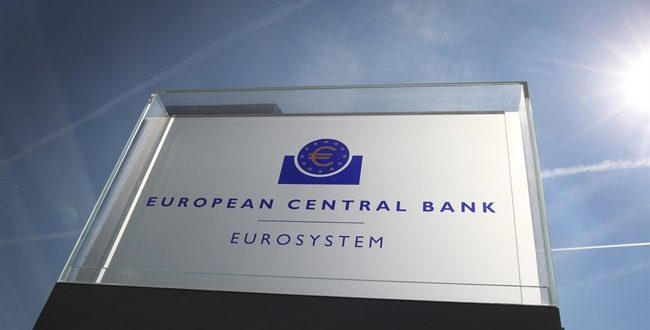Eurozone banks are set to tighten access to corporate credit for the first time in 2-1/2 years as they become more wary of risk and negative interest rates eat into their profit, a European Central Bank survey showed on Tuesday.
Banks stopped easing credit standards for enterprises in the three months to September and a narrow majority of them expects to tighten them in the current quarter, the ECB’s lending survey showed, businesstimes.com wrote.
Lenders cited lower risk tolerance as a factor contributing to the tightening, while also voicing their discomfort with the ECB’s negative deposit rate, effectively a charge on banks’ deposit with the central bank.
A large majority of banks said the charge had a negative impact on their lending rates and margins over the past six months. Some even said it was leading to an increase in their charges to customers, particularly companies, over and above interests.
The survey was conducted in September.
Annual inflation
Eurozone annual inflation in September rose to 0.4 percent, up from 0.2 percent in August, official data showed on Monday.
In the 28-member European Union (EU) block, annual inflation was also 0.4 percent in September, up from 0.3 percent in the previous month, said Eurostat, the statistics agency of the EU.
A year earlier the rate was minus 0.1 percent in both zones.
According to Eurostat, negative annual rates were recorded in Bulgaria, at minus 1.1 percent, followed by Croatia with minus 0.7 percent and Slovakia with minus 0.5 percent.
The highest annual rates were observed in Belgium at 1.8 percent, followed by Estonia and Austria.
Compared with August, annual inflation fell in nine EU countries, remained stable in two and rose in 16.
The largest upward impacts to euro area annual inflation came from restaurants and cafes, as well as rents and tobacco, while fuels for transport, gas and heating oil had the biggest downward impacts.
Realizing that the continued reduction in energy price deflation was the key driver of higher Eurozone inflation last month, economists predicted that further upside is likely.
Claus Vistesen, chief Eurozone economist of Pantheon Macroeconomics, said deflation has been vanquished in the Eurozone economy.
“Inflation will remain below the European Central Bank‘s target in the near term, but bond yields are creeping higher. We think, that deflation is yesterday’s cyclical story in the Eurozone economy,” he said.
 Geostrategic Media Political Commentary, Analysis, Security, Defense
Geostrategic Media Political Commentary, Analysis, Security, Defense





